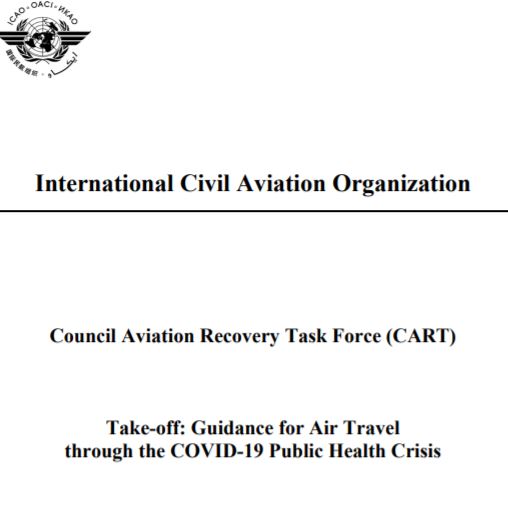ICAO completed its third regional roll-out session to national heads of civil aviation, as it continues to progress global COVID-19 aviation alignment through its Governing Council’s Aviation Recovery Task Force (CART) recommendations and guidelines.
The webinar, which was open to the public and hosted by ICAO’s South American (SAM) Regional Office, comes closely after the conclusion of similar regional events hosted by the UN aviation agency’s North American and Caribbean (NACC) and European and North Atlantic (EURNAT) Regional Offices. All three webinars gathered together the Directors General of Civil Aviation from their respective accredited States and achieved progress on numerous fronts.
In addition to these webinars, ICAO is sharing a COVID-19 Webinar Series that presents updates and information on the various ways ICAO is currently supporting the civil aviation community during the pandemic crisis. The series is hosted by leading international experts in their fields.
When introducing the CART guidelines to the national aviation heads, ICAO Secretary General, Dr. Fang Liu, underscored that “the CART’s work and deliverables have been developed in league with our colleagues at the WHO, many other international organizations, and our partners in the aviation industry. They’ve been designed to enable Member States and Industry to implement harmonized risk mitigation measures in full accordance with the latest medical and traveller health advice available.”
Dr. Liu also stressed that while the CART provisions were intended to align and progress the national, regional, and industry-specific recovery roadmaps now being implemented, they would not replace them.
“Individually and collectively, you best understand the challenges your countries and region are now facing, and we must therefore rely on that understanding, and on your ability to develop tailored recovery measures which are consistent with the CART framework while addressing your specific priorities,” she commented.
Besides the guidelines’ focus on international COVID-19 coping and restart priorities, Dr. Liu emphasized that “the third pillar supporting the CART’s work is to take advantage of this moment in aviation history to help realize a more resilient and sustainable air transport network based on the lessons we are now learning.”
She also took a moment to put current actions into proper perspective when underlining that the priorities toward recovery being pursued globally “aren’t only about the operational and economic viability of the air transport sector, but of your societies and regions having their economic livelihoods and stability restored.”
ICAO was grateful for the participation of many ICAO Council Member State representatives in this week’s virtual sessions, from Colombia, Costa Rica, the Dominican Republic, Finland, Germany, Greece, Italy, Mexico, The Netherlands, Russian Federation, Spain, and the United Kingdom. The ICAO EURNAT meeting, in particular, featured inputs from the Chairperson of the CART and Ambassador of France on the ICAO Council, Mr. Phillippe Bertoux.
Progress is already being achieved in ICAO’s regions toward the implementation of the CART recommendations, with continuous outreach and coordination activities proceeding on pace. Over the next two weeks, ICAO will be conducting further CART virtual meetings hosted by its Middle East, Asia-Pacific, and East and West African Regional Offices.
Looking forward, Dr. Liu reminded her audiences that all of ICAO’s operational response measures and support tools have been consolidated, along with the CART recommendations and guideline modules, on ICAO’s online COVID-19 platform. She encouraged all in attendance to make full use of its resources.



